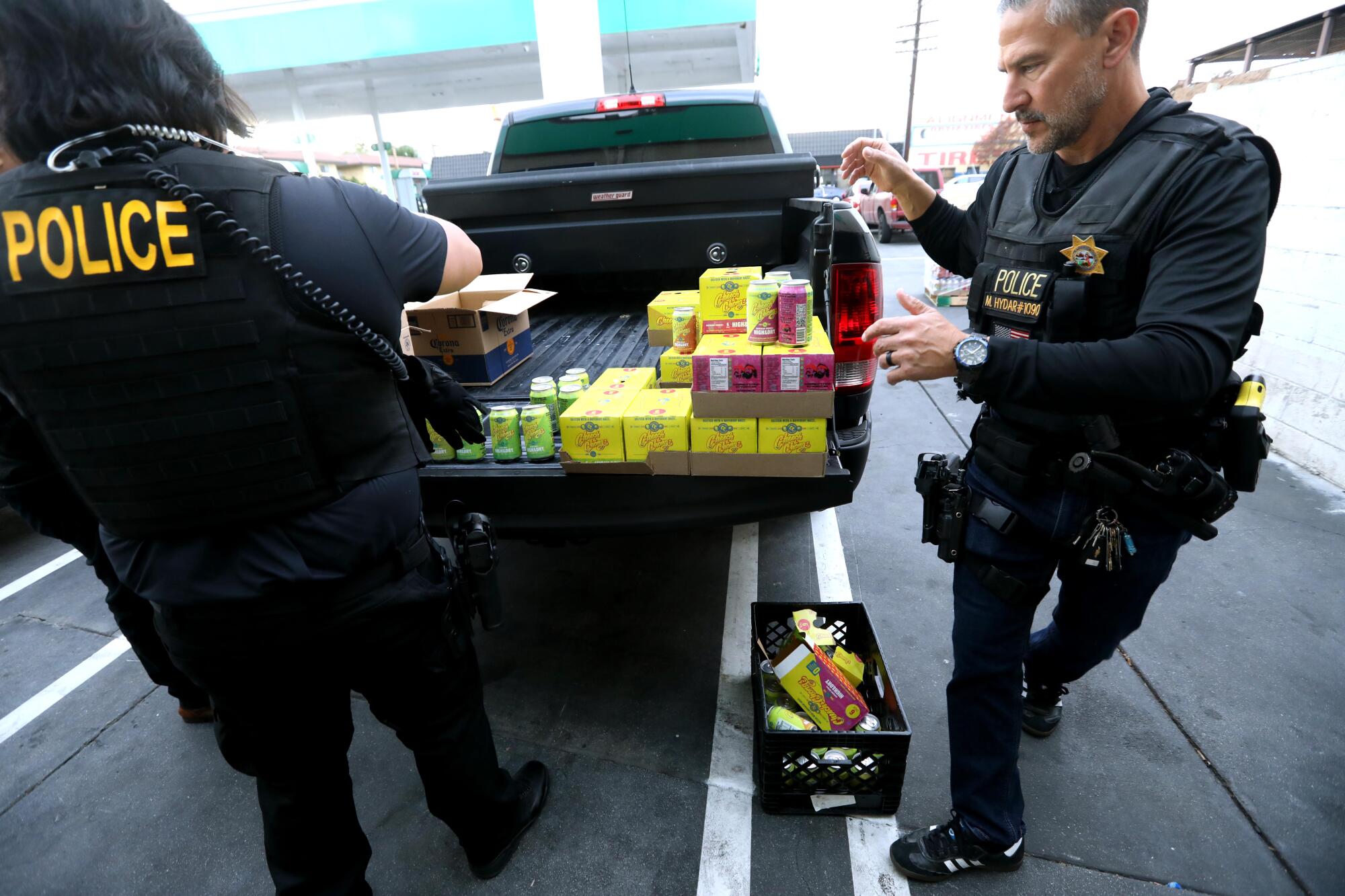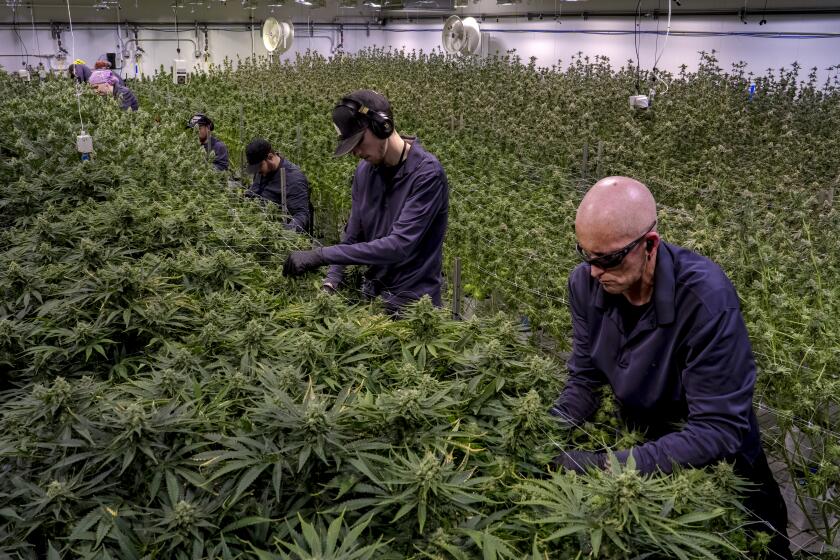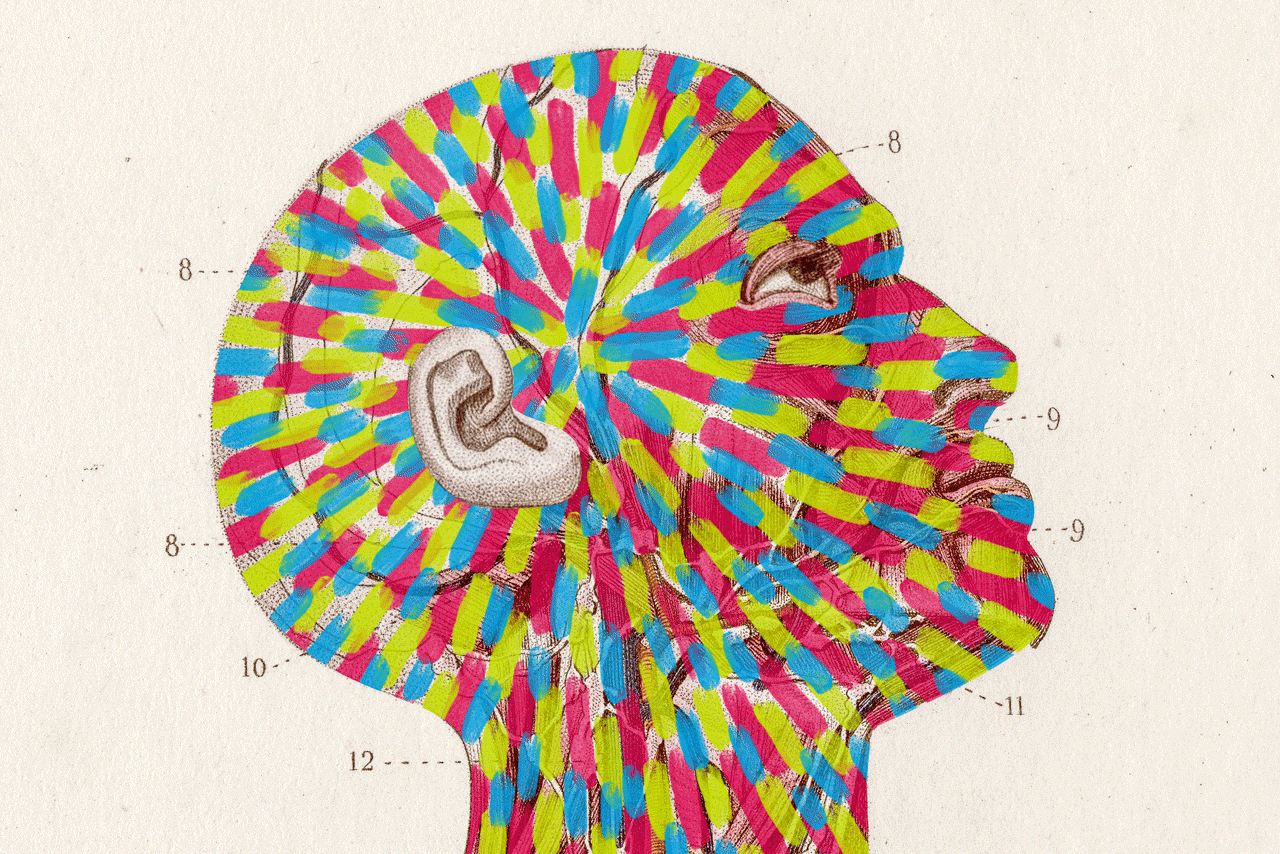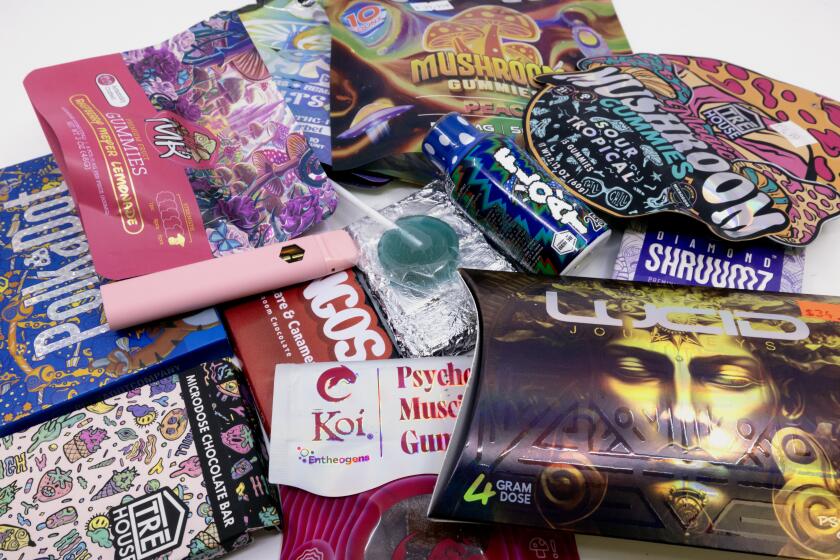
- Share via
- California banned so-called “intoxicating hemp” products in September under emergency state regulations because they contain THC and other compounds known for getting users high.
- Hemp companies argue the ban is too strict, outlawing drinks containing “microdoses” of THC and items with mostly CBD. Similar products are still available at state-licensed cannabis dispensaries.
- The hemp industry is challenging the rules in court while also working on a proposed legislative solution to present to state lawmakers in January.
A dark-haired man in a worn flannel coat walked into a Dino Mart convenience store on a busy street in North Hollywood one recent weekday afternoon. He perused the shelves before landing on a mini-fridge stocked with colorful cans near the chip aisle.
As he purchased a drink and walked back out of the shop, Esmeralda Reynoso, a supervising agent in charge with the California Department of Alcoholic Beverage Control, looked on through the windshield of her unmarked sedan parked outside.
Moments later, she received a text from the shopper: “THC cans located.”
He was an undercover agent working for Reynoso’s agency, the ABC, which issued Dino Mart’s license to sell alcohol. Soon after he left, a team of agents swooped in to search the store more thoroughly.
The operation targeted so-called “intoxicating hemp” beverages, which were banned in September under emergency state regulations because they contain THC, the compound known for making cannabis users feel stoned.
Gov. Gavin Newsom has said the restrictions — which effectively outlaw any product with detectable levels of THC, except those sold at state-licensed dispensaries — are necessary to protect the public from beverages, gummies and other products that contain hemp-derived THC or any of about 30 other natural and synthetic chemicals known as cannabinoids. Before the statewide ban, the goods were available at small corner shops and large chain retailers, while similar items sold at licensed dispensaries are subject to additional taxes and quality control testing.
Hemp companies argue the governor has cast too wide a net. They say the ban sweeps up innocuous products, such as drinks containing “microdoses” with just a few milligrams of THC, and items that contain mostly CBD, a non-intoxicating cousin of THC popular with pain sufferers and cancer patients.

In the two months since the rules went into effect, companies across California and beyond have laid off employees and halted operations in the state — upending a market for hemp and CBD products that some economic research firms estimate generates more than $1 billion in annual revenues. Manufacturers have been forced to destroy thousands of products that are now illegal.
When ABC agents searched the Dino Mart in North Hollywood, they found several cans of Cheech & Chong’s Orange Dream and Cycling Frog’s Ruby Grapefruit THC Seltzer on display, plus more stacked in milk crates in a storage room.
A comparison of Michigan and California shows how one state can have a booming cannabis economy while another’s still feels like a pipe dream.
The agents seized the products, more than 200 cans in total, and gave the store’s manager, Augustin Martinez, a printed notice about the emergency regulations.
“I just found out that this is illegal. No one ever sent any notice or anything, so we didn’t know,” Martinez said. “We’ve been selling them for a while now, more than a year.”

Similar scenes have played out repeatedly in recent weeks. From Sept. 24 to Nov. 10, according to ABC data, state regulators seized 5,318 illegal hemp products from 102 different stores.
Within days of the ban taking effect, an industry group called the U.S. Hemp Roundtable and several companies filed suit against the California Department of Public Health. They argued that the agency did not successfully demonstrate an immediate crisis necessitating emergency regulations.
For the record:
8:49 a.m. Nov. 25, 2024An earlier version of this article said a legal challenge to California’s emergency regulations remains pending. The plaintiffs dropped their lawsuit.
Last month, L.A. County Superior Court Judge Stephen Goorvitch denied a request by the plaintiffs for a temporary restraining order that would have halted enforcement of the order. The plaintiffs dropped their lawsuit last week.
“Dangerous and intoxicating hemp products should not be available to children in retail stores,” Newsom said in a statement Monday. “These regulations put our children’s safety ahead of profits. We won’t stop fighting for our kids and their safety — and working to defend the legal and regulated cannabis market.”
The ABC’s director, Joseph McCullough, said retailers across the state are “overwhelmingly complying” with the new rules.
“I am very proud of the work our agents do every day in keeping these dangerous products off shelves,” McCullough said. “I’d also like to acknowledge the outstanding work of our team in getting word out to our licensees prior to us engaging in enforcement efforts.”
A rare condition called hallucinogen persisting perception disorder has puzzled researchers and raised alarms as psychedelics go mainstream.
Ajay Narain, chief executive of Beacon Beverages, which specializes in mocktails infused with hemp-derived THC and CBD, said the Bay Area-based company has experienced a 35% drop in revenue and laid off four employees since the regulations went into effect.
“The loss has been significant and really demoralizing,” he said in an email. “It’s just baffling to me that instead of doing the obvious – require consumers to be 21+ to purchase Hemp drinks and enforce responsible packaging that doesn’t appeal to children – Newsom just outright banned it.”

Although many in the legal cannabis industry have in the past opposed intoxicating hemp products because they compete for market share, Jonathan Black, CEO of Danville-based industry giant Cheech and Chong’s Global Holdings, said a recent summit in Sacramento led to a proposed legislative solution with broad support from both sides. They hope to present the idea to state lawmakers in January, when California’s 2025 lawmaking session begins.
“We’re working on a comprehensive bill to present to the governor and the state Legislature to benefit both cannabis and hemp, to up the taxable revenue to the state, make sure we follow compliance standards on both, and protect the industry at the same time and protect the consumer,” said Black, whose company is among those suing over the state ban.
Jim Higdon, a member of the U.S. Hemp Roundtable and co-founder of Louisville, Ky.-based Cornbread Hemp, said that until the law changes, California should prioritize stamping out illegal dispensaries and smoke shops selling illicit high-THC products and fake psilocybin mushroom chocolate bars.
Chocolate bars and gummies purporting to contain psilocybin mushrooms have become a common sight at smoke shops and illegal cannabis dispensaries across Southern California. But a Times investigation found they sometimes contain harmful or illegal compounds.
“If I were in government, my primary focus of enforcement would be illegal cannabis dispensaries in the illicit market, and unlicensed smoke shops,” he said. “That’s where teenagers are getting these products.”
The governor has maintained the restrictions are necessary to protect young people from products that should be available only to adults.
“We will not sit on our hands as drug peddlers target our children with dangerous and unregulated hemp products containing THC at our retail stores,” Newsom said in a statement announcing the new rules. The changes aim to “to close loopholes and increase enforcement to prevent children from accessing these dangerous hemp and cannabis products,” he said.
A Pew Research Center study released in February indicated as many as 1,100 illegal cannabis shops are operating in L.A. County. The sheriff’s department has said it’s only raiding two to four of the illicit stores per month, and that many reopen within days of being shut down.
But the intoxicating hemp enforcement effort, at least, has been a success, according to Matthew Hydar, a deputy division chief for the ABC.
“We’ve seen a pretty steady decrease in the number of places that are out of compliance” and still selling the illicit beverages, he said outside the Dino Mart as agents loaded the seized beverages into the back of a pickup truck. “We’ve got two aligned goals: keeping the public safe and making sure stores are in compliance. We’re not here to shut down stores. … The message needs to be that stuff like this is not legal.”
The sudden shift has frustrated Jake Bullock, CEO of Cann, a Venice Beach-based maker of low-dose THC-infused drinks. Bullock said his company’s offerings were popular at Erewhon supermarkets before Newsom’s ban. All of Bevmo’s approximately 140 stores in California were selling the drinks, he said.
Cann sold millions of dollars worth of product this year and was on track to do $15 million in sales in 2025, Bullock estimated.

“We were going to grow a lot in California the back end of this year and next year and that’s gone,” he said. “If we don’t get a change to these laws in the coming months, we’re going to be forced to leave the market.”
Newsom’s emergency ban is only in effect until March, when the restrictions will be rolled back unless they are replaced with a permanent version.
Alexa Steinberg, corporate counsel at the L.A.-based law firm Greenberg Glusker, represents multiple companies in the hemp, CBD and cannabis space. She said her clients are “holding their breath” to see what happens.
“If it becomes permanent, it would effectively kill a lot of brands,” she said.














